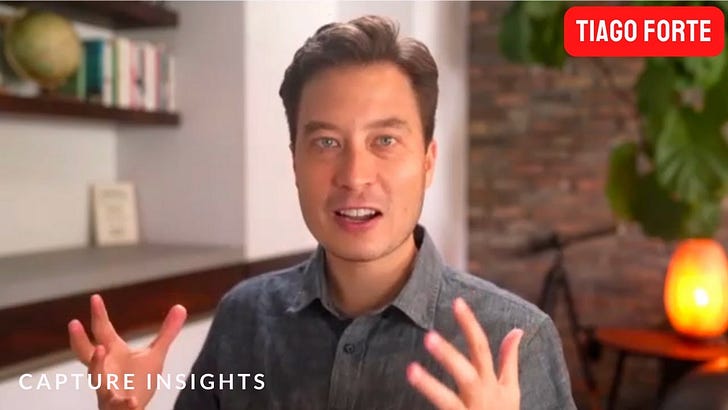Tiago Forte shares surprising insights about the reason why people get into building a second brain, the way people take notes, how he thinks about his knowledge and why it really doesn't matter if he loses all of his content!
Anne-Laure Le Cunff wrote on Twitter about Archetypes which I found interesting:
Architect -- They want to create the ultimate system. They want the all encompassing framework. A giant blueprint that’s about everything fitting everything together. Mainly about organizing information.
Gardener -- They want to explore and discover and plant all of these ideas, and watch them sprout and grow. They want to see how they interconnect. They're in wonder and full of imagination. This is more about digesting information and making connections.
Librarian -- They are about collecting and capturing from many different sources, and organizing. They’re focused on research or specific projects. It's something in between the other two two archetypes. This archetype is primarily about collecting information.
You can have some of each but you might find that you have a particular archetype that resonates more strongly with you. For me, it’s the gardener that pops out. The note-taking software that often works better are the “networked” software like Roam Research, Obsidian, Logseq and so on.
By "networked," I’m mean being able to network chunks of information together which means that your notes are not static but that they becomes its own block of information you can endlessly reference and embed throughout other pages in your note-taking software.
CODE
Code stands for Collect, Organize, Distill, Express. It’s Tiago’s system for helping people save ideas, organize their learning, and grow their intellectual output.
Collect
I use the following software to collect notes:
Roam Research: If I’m sitting with my computer, then I’ll use Roam.
Apple Notes: If I’m out and about, in bed, in the bathroom, Apple Notes is amazing for collecting thoughts, info, etc. It’s really becoming better and better, and I think it’s a become a great tool.
Readwise: It takes highlights from Instapaper, Kindle, etc.
Airr: Podcast highlights.
Organize
This is about organizing the information that you have collected. This is done with PARA which stands for Projects, Areas, Resources, Archives.
Projects: This is a series of tasks linked to a goal with a deadline, like writing a book.
Areas: A sphere of activity with a standard to be maintained over time, like productivity.
Resources: A topic or theme of ongoing interest, like digital marketing.
Archives: Inactive Items.
Distill
This is about getting to the essence of your notes and applying Pareto’s 80/20 principle.
If you have huge amounts of notes on a book, for example, then you can go through your notes again and ask yourself, “How can I make this more easily discoverable for my future self?”
Express
This is about sharing what you’ve learned with the world. Tiago mentions in the interview that even if he lost all of his notes, it wouldn’t bother him because he’d much prefer having the pieces that he published.


